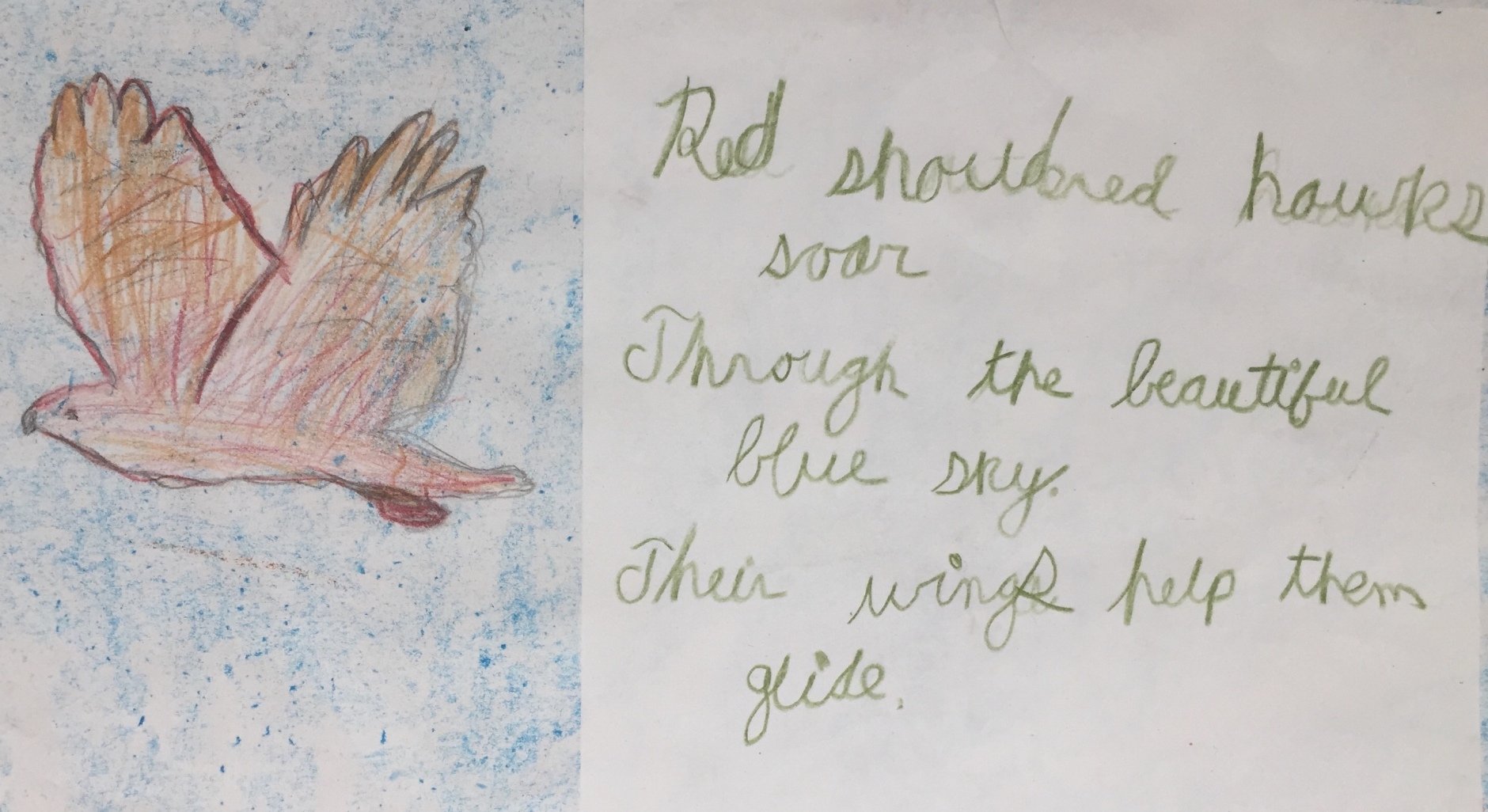2nd Grade Haikus
This week, 2nd Graders demonstrated their creativity, as well as their understanding of parts of the English language, by composing and illustrating haiku poems that describe the world around them. Below, our 2nd Grade teacher Ms. Martin shares her lesson, as well as some samples of student work.
Dear second grade children,
In these past few weeks, you have learned about naming words (nouns), doing words (verbs) and describing words (adjectives) and have seen how they work together to make a sentence. Now, in writing a haiku, you are using these parts of a sentence , and also your senses! What do you see, taste, feel, hear? Remember, a haiku is a short poem that captures a moment in time. It is a small window into a moment or an experience. We have heard many stories of saints and sages in these past few weeks!
Do you think Francis of Assisi observed nature? Remember how he communicated with the birds and the wolf of Gubbio? Odelia did not have her eyesight from the time she was born until she was a young woman, and yet she knew of the ways of nature. She felt the wind on her cheeks and could feel the flowers growing in a way most of us are not familiar with. Do you remember that Kee-ten (the Native American author, Mourning Dove) had to learn as a child to listen to the river, the wind and all of nature which was trying to speak to her?
When we sit still to listen and see the tiny creatures of the earth, or the twinkling stars on an early morning, or the intricate, colorful wings of a butterfly, we too are listening to nature! What is it trying to teach us? What moment in time would you like to share?
In order to write your haiku you must:
Choose a topic
Sit, listen, observe
What would you like to share? Count the syllables. A haiku is 3 lines, with the first and last line being 5 syllables and the middle line being 7 syllables.
Write your haiku!
Here is the haiku I wrote, inspired by the fawns I saw in front of our
classroom.
Two fawns in tall grass.
Spotted, brown and white they lay,
Curious and calm
The most famous haiku poem of the most famous haiku poet in Japan.
古池や 蛙飛び込む 水の音
The old pond
A frog leaps in.
Sound of the water.
The syllables are different in Japan than they are in English!
Thank you, children, for doing your best work in writing your Haikus. I look forward to seeing what you have created.
Warmly,
Mrs. Martin




